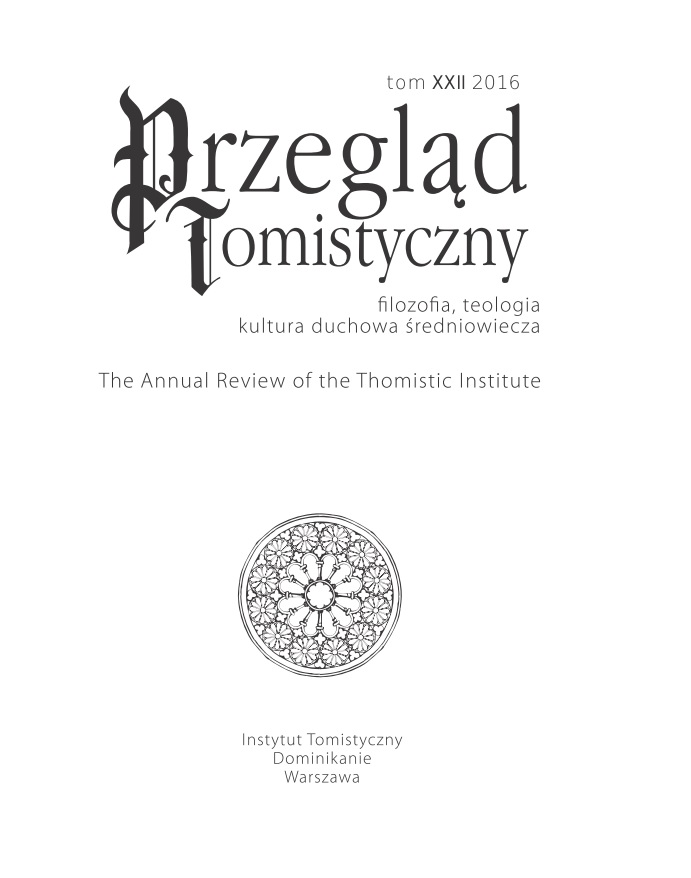Marsilia Ficina "Pięć kwestii o umyśle" - przesłanie filozofa in nuce
Marsilio Ficino’s Five Questions Concerning the Mind — the Concept of the Philosopher in Nuce
Author(s): Joanna PapiernikSubject(s): Christian Theology and Religion, Renaissance Philosophy
Published by: Instytut Tomistyczny
Keywords: Marsilio Ficino; Platonism; Renaissance Neoplatonism; saint Thomas; platonizm; neoplatonizm renesansowy; św. Tomasz
Summary/Abstract: Marsilio Ficino, a Florentine philosopher of the fifteenth century, was the first in the Latin West to translate the whole Corpus Platonicum as well as many Neoplatonic works. He is known as the Renaissance propagator of Platonism. From this philosophy he drew many of his own concepts. According to Ficino, Christianity is the highest species in the genre of religion and, having assumed that there is an absolute, unchangeable truth, he went looking for it (and was certain that he found it) in pre-Christian texts (finding in them the expression prisca theologia). Th at is why Ficino’s project included the synthesis of pia philosophia with docta religio. Th is is the main thrust of Platonic Theology (the Florentine’s major work, written between 1469 and 1474): the author defends the immortality of the (individual) soul and postulates that the worship of God by the human soul can be expressed practically by uniting pious philosophy with learned religion. Five Questions Concerning the Mind is part of the opuscula theologica written by Ficino in 1476. In this short treatise, the philosopher asks whether humans can reach their essential goal — “boundless truth and goodness.” His considerations contain some Neo-Platonic elements as well as Scholastic components, including the concepts of appetitus naturalis and primum in aliquo genere, which can be found in the writings of Saint Th omas Aquinas (Ficino was a keen reader of Thomas’s works, especially Summa contra Gentiles). According to Ficino, it is the natural appetite that causes each human soul to strive for goodness and truth, and the search for these things must, at least sometimes, be fruitful. He posits that goals set by human nature itself cannot be unreachable. The human soul shares some powers with lower beings (namely, the sensitive part of the soul) and some with higher beings (the mind that contemplates, which is the noblest power). The human soul also has a power peculiar to itself — the discursive power (that is, reason). Reason can embrace the data provided by the senses or try to ignore them, but in both cases it is in a state of constant inquiry and can never be at rest. The author’s conclusion is that the human soul can indeed attain its end, but only after separation from the earthly body.
Journal: Przegląd Tomistyczny
- Issue Year: 2016
- Issue No: XXII
- Page Range: 121-155
- Page Count: 35
- Language: Polish, Latin

